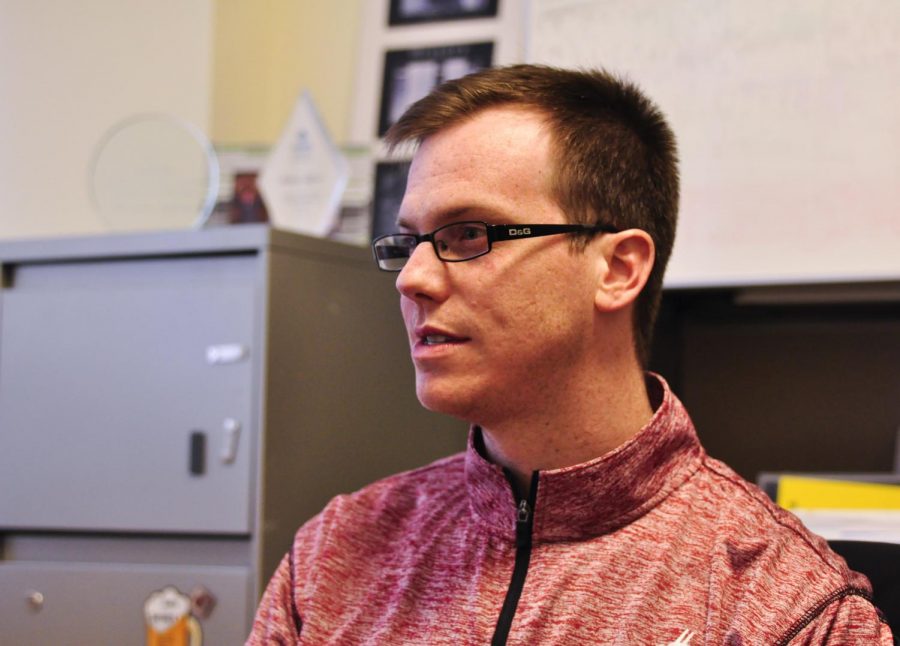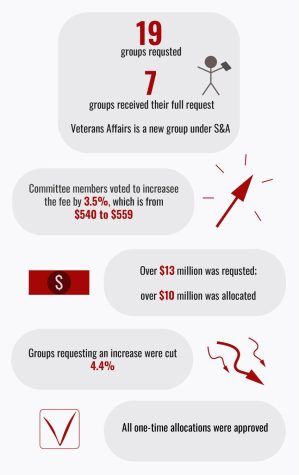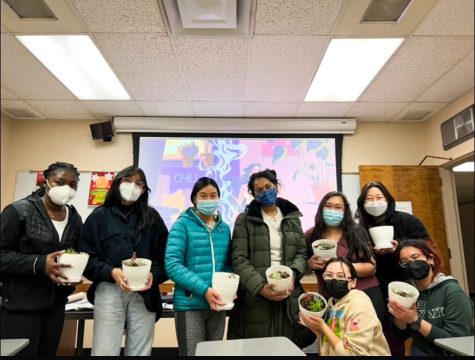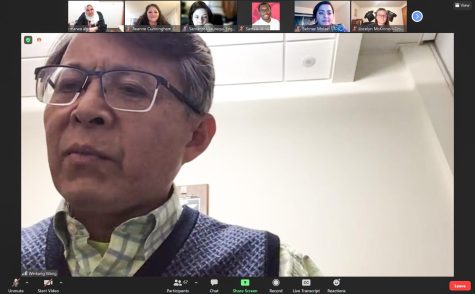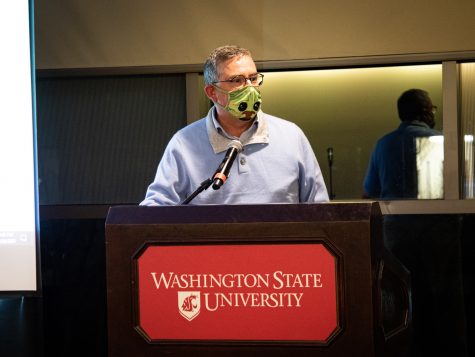GPSA passes transit fee increase after ASWSU
Higher cost meant to encourage other modes of transportation
MATT ESTABROOK | DAILY EVERGREEN FILE
GIESORC Director Matthew Jeffries says his group is working to expand lactation spaces, menstrual product accessibility and gender inclusivity on campus.
February 26, 2019
GPSA approved a 5 percent increase in student transit fees to promote alternative transportation options for students. GIESORC also presented on promoting inclusivity at WSU.
Transit fee increase
Other than walking and driving, the transit fee encourages students to use public transportation. The transit fee helps to maintain the current level of service and prevent service reductions, said Chris Boyan, associate director of transportation services.
This is an increase of $3.43 per year. It would raise the current transportation fee to $72.17, he said.
ASWSU approved the increase last week, Boyan said.
Two years ago, students approved a yearly increase of up to 5 percent, he said. The annual increase has to be approved by the Transit Advisory Group and both ASWSU and GPSA.
Gender inclusivity on campus
Since August, building codes have required new or renovated buildings to include a gender-inclusive bathroom, said Matthew Jeffries, director of the Gender Identity/Expression and Sexual Orientation Resource Center (GIESORC).
He said GIESORC will also determine how to convert multi-stall bathrooms into gender-inclusive bathrooms. It is looking at how much that will cost.
There are free menstrual products in some of the restrooms on campus, including in the CUB, Chinook and UREC. The products are also in three of the men’s restrooms to see if they are being used, Jeffries said.
GIESORC is planning to expand the free menstrual products throughout campus, he said.
The lack of lactation spaces is an issue, Jeffries said. However, there are two more lactation spaces in development.
The two in progress are going to be in Cougar Health Services and Cleveland Hall, he said.
Currently, there is one in the Women’s Center in Wilson-Short Hall and another one in Human Resource Services, located in the French Administration Building, Jeffries said.
“Though, if you work in Dana or Sloane, that’s like 800 years away,” he said.
Jeffries said the Chinook also has a lactation space, but most graduate students do not have memberships to the building.
Graduate health insurance will now cover pre-exposure prophylaxis, a medication for people who have a moderate to a high risk of contracting HIV, he said.
The medication was not previously offered at Cougar Health Services, Jeffries said.
GIESORC also has been working with Cougar Health Services to offer post-exposure prophylaxis in the future, he said.
Jeffries said, “There’s a lot of exciting stuff happening, and people are really committed to making the changes.”


